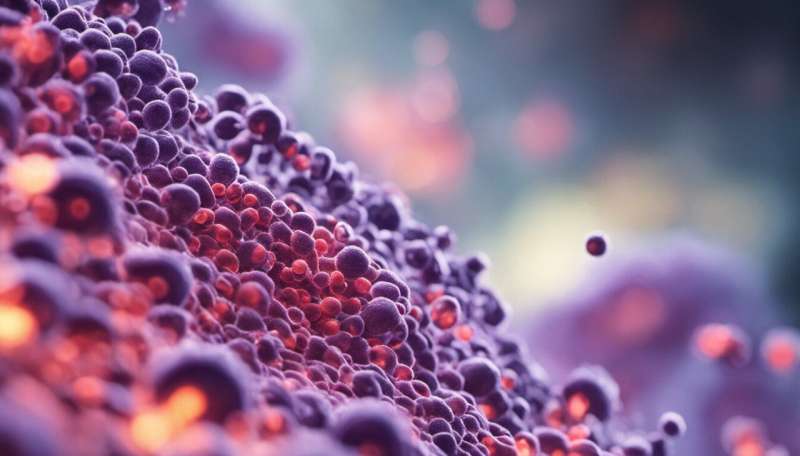
Hematopoietic stem cells (HSCs) are rare cells found in the bone marrow that produce red blood cells, white blood cells, and platelets. Their correct functioning is indispensable for the growth and health of an organism. Accordingly, defects in the DNA of hematopoietic stem cells (mutations) can cause impaired blood production and severe diseases.
Gene therapy seeks to treat such types of genetic diseases. A breakthrough technology that has driven the entire field in recent years is gene editing via clustered regularly interspaced palindromic repeats/Cas9 (CRISPR/Cas9). Using this technology, one can modify disease-causing mutations and transplant HSCs with recovered function, potentially curing the disease.
However, the CRISPR/Cas9 system is not perfect. It only corrects mutations in a small fraction of cells and can introduce new, potentially dangerous mutations into other cells. Therefore, selecting corrected cells before transplantation is crucial.
In 2019, a research group from the University of Tsukuba reported a method of expanding HSCs over a long time period using a polymer-based culture system and cytokines. In response to this problem, the authors have developed a novel culture system using a novel high-molecular-weight polymer. The study is published in the journal Cell Stem Cell.
This system facilitates the growth of single HSCs in transplantable cell colonies that achieve high blood-producing capacity after long-time ex vivo culture. After editing a mutation in a murine immune deficiency model, the authors individually grow several hundred HSCs and screen them for clones that contain only the desired edit and are expected to engraft successfully.
Using this method, the fraction of successfully corrected HSCs used for transplantation can be increased from 20%–30% to 100% while eliminating potentially dangerous mutations from the graft. The researchers believe that this culture system might contribute to improving the efficiency and safety of genome editing in HSCs.
University of Tsukuba

